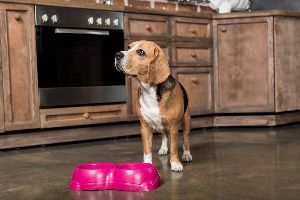
Adding a dog to your family is an exciting time. In addition to purchasing collars and leashes, bedding, and lots of fun toys, you'll need to stock up on the right type of food so they can stay healthy and strong. There are many factors to consider before you make a purchase, and it's best to also discuss your pet's needs with your veterinarian. Take a look at the guide below to get started.
Types of Dog Food
When it comes to the type of food you choose, there are an overwhelming number of options. While some pet owners prefer home-cooked meals, your veterinarian may warn against it unless you can guarantee that it provides all the essential vitamins and minerals dogs need. Similarly, some vets may not recommend a raw food diet, which is typically not necessary.
Instead, it's best to choose either dry or wet food—or you can do a mix of both. The Association of American Feed Control Officials offers a label for foods that provide the necessary nutrition for a dog.
Lastly, you'll need to choose food that's catered to the current life stage of your dog so they get the right amount of nutrients. There are also foods based on breed to cater to your pup's unique health.
How Often to Feed Them

Puppies have a lot more energy and grow quickly, so they'll need to be fed more often—around three to six times a day. However, once they reach about one year old, you should feed them twice a day. Feed them about 12 hours apart and try not to go over this timeframe. Otherwise, your dog may have too much acid buildup, leading to nausea.
How Much to Feed Them
How much to feed your dog depends on their size, age, and activity level. Puppies usually need at least twice as much food because of their growing bodies. Toy and small dogs need anywhere from half to one cup of food a day, while some large breeds need as much as four cups. You should consult the chart on the food label and confirm with your veterinarian to ensure you're not over- or under-feeding your dog.
Foods to Avoid
Many human foods should not be shared with your dog. They should not have chocolate, grapes or raisins, pits or seeds, macadamia nuts, or onions. Salty, fatty, and sweet foods can make them sick as well, and you should avoid giving them bones from your meal because they could splinter. Stick to commercial dog food and treats.
If you need a veterinarian to look after your pup and provide guidance on proper nutrition, turn to Pet Health Clinic in Daleville, VA. Pet wellness is their passion, and they treat each pet like they’re family. From yearly checkups to dietary counseling, they offer all the services necessary to keep your furry friend healthy and happy. Visit their website to learn more about their services, and call them at (540) 992-4550 to schedule an appointment.
About the Business
Have a question? Ask the experts!
Send your question

